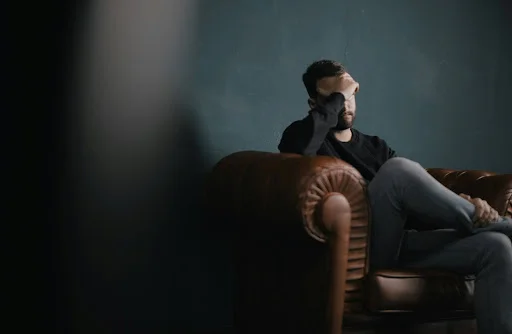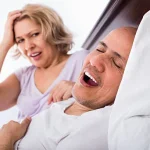Finding the best therapy for anxiety involves exploring a range of options that address both the psychological and physiological aspects of the disorder. This article delves into various therapeutic approaches, including traditional and holistic methods, to help individuals determine the most effective treatment for their needs.
Anxiety disorders can manifest in diverse ways, affecting both mind and body. Understanding anxiety therapy options is crucial for effective management. While traditional therapies like cognitive-behavioral therapy (CBT) are widely recognized, integrating holistic strategies such as meditation, mindfulness, and yoga can enhance treatment outcomes by addressing the whole person.
Exploring traditional therapies for anxiety
Traditional anxiety therapy often include cognitive-behavioral therapy (CBT), which focuses on identifying and changing negative thought patterns. CBT is highly effective for many individuals, providing tools to manage anxiety symptoms and improve mental health. Other conventional options include medication, which can help regulate brain chemistry and reduce anxiety symptoms.
Therapists may also recommend exposure therapy, which gradually introduces individuals to anxiety-provoking situations in a controlled manner. This approach helps desensitize individuals to their triggers, reducing the intensity of their anxiety responses over time.
Group therapy sessions have also emerged as a powerful traditional treatment option for anxiety disorders. These structured environments allow individuals to share experiences, learn from others facing similar challenges, and develop social support networks. The collective healing experience often helps normalize anxiety symptoms while providing practical coping strategies from peers who understand the daily struggles. Additionally, group settings offer opportunities to practice social skills and anxiety management techniques in a safe, controlled environment.
Journey into new perspectives and insights—read more.
Integrating holistic methods with traditional therapy
Holistic methods, such as meditation and mindfulness, offer complementary benefits to traditional therapies. These practices encourage individuals to focus on the present moment, reducing stress and promoting emotional regulation. Yoga, which combines physical movement with breath control, fosters a sense of calm and relaxation, making it a valuable addition to anxiety treatment plans.
Acupuncture is another holistic approach gaining recognition for its potential benefits in anxiety management. This ancient practice involves inserting thin needles into specific points on the body to balance energy flow. Many individuals report a reduction in anxiety symptoms and improved overall well-being after incorporating acupuncture into their treatment regimen.
Herbal remedies and natural supplements have become increasingly popular complementary treatments for anxiety management. Substances like chamomile, lavender, and passionflower have shown promising results in reducing anxiety symptoms when used alongside conventional treatments. However, it’s crucial to consult healthcare providers before incorporating any supplements, as they may interact with prescribed medications or have contraindications for certain individuals. Some practitioners also recommend aromatherapy and essential oils as part of a comprehensive holistic approach to anxiety management.
Benefits of a combined approach
The integration of holistic practices with traditional therapy offers several advantages for individuals seeking relief from anxiety. By addressing both physical and mental aspects of the disorder, this combination provides a well-rounded treatment plan that caters to individual needs. Incorporating these methods can lead to enhanced emotional resilience and improved coping mechanisms.
Holistic approaches often emphasize self-awareness and self-care, empowering individuals to take an active role in their healing journey. This empowerment fosters a deeper understanding of personal triggers and stressors, enabling more effective management of symptoms over time. As a result, many find this integrated approach to be more sustainable in the long term.
Finding the right therapy for you
Determining what is the best therapy for anxiety involves considering personal preferences and specific symptoms. If you’re interested in integrating holistic practices into your routine, start by exploring activities like meditation or yoga. Set aside a few minutes each day for these exercises to cultivate mindfulness and enhance your emotional well-being.
Additionally, seek guidance from professionals experienced in both traditional and holistic methods who can tailor recommendations based on your unique needs. This personalized advice will help ensure you receive the maximum benefit from these complementary therapies. For those seeking professional support, the Evolutions Treatment Center in Florida offers a range of services that integrate holistic practices with traditional therapy.
Unlock knowledge that sparks curiosity—explore the full guide on 2A Magazine.







